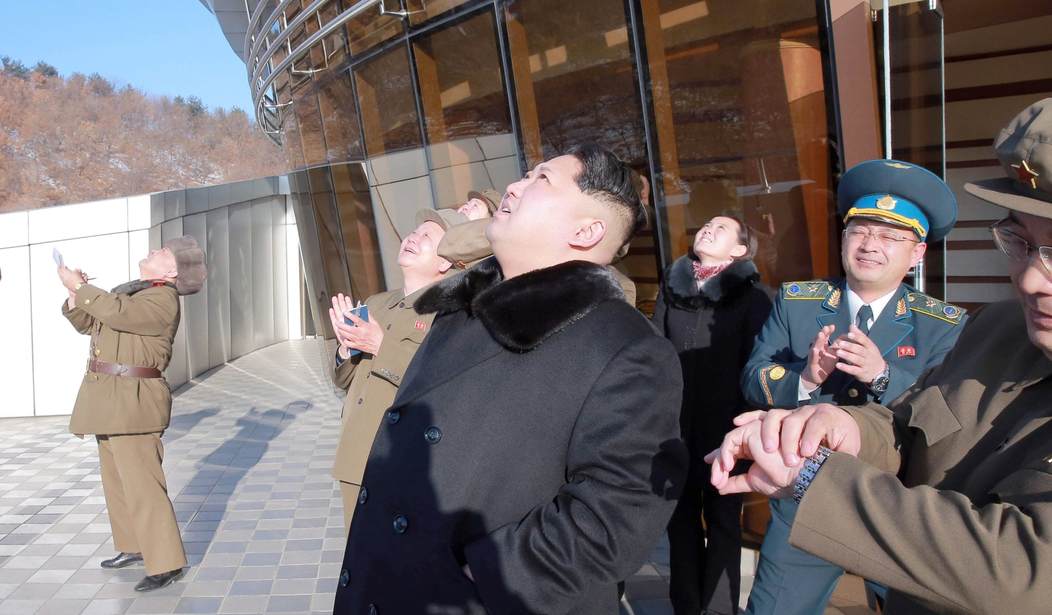The Senate approved new sanctions on North Korea 96-0 while the White House remained mum about its thoughts on the legislation, which is opposed by China.
“Four nuclear tests, three Kims, two violations of United Nations Security Council Resolutions and one attempt by North Korea to transfer nuclear technology to Syria later — it is clearly time for the United States to start taking the North Korea challenge seriously,” said co-sponsor Bob Menendez (D-N.J.), a top Dem on the Senate Foreign Relations Committee and the panel’s former chairman.
“With today’s overwhelming bipartisan vote, we have taken a major step forward in creating a new policy framework that combines effective sanctions and effective military countermeasures that can stop North Korea’s nuclear ambitions and bring some sanity back to the political calculus,” Menendez said. “This new framework leaves no doubt about our determination to neutralize any threat North Korea may present – with robust, realistic diplomacy toward the clear goal of a denuclearized Korean Peninsula.”
Menendez said on the Senate floor today it’s important to use sanctions “not just aginst the regime in North Korea” but against those who would enable Kim to pursue his nefarious goals.
Co-sponsor Cory Gardner (R-Colo.), chairman of the Foreign Relations Subcommittee on East Asia, the Pacific, and International Cybersecurity Policy, said it’s “evident the regime’s nuclear and ballistic missile capabilities are growing, not slowing.”
“At the same time, North Korea has bolstered its cyberattacks and continues to imprison and horrifically torture more than 200,000 of its own men, women, and children,” he said.
“This legislation is the first step of building a new policy that will put pressure on Pyongyang to peacefully disarm and cease its violations of international norms… It’s far past time to counter the Forgotten Maniac.”
Sens. Marco Rubio (R-Fla.) and Ted Cruz (R-Texas) returned from the campaign trail to vote for the bill. Sens. Bernie Sanders (I-Vt.), Dick Durbin (D-Ill.), Lindsey Graham (R-S.C.) and Dan Sullivan (R-Alaska) were absent for the vote.
Sanders, however, submitted a statement of support into the congressional record. “While China may have been a steadfast ally of North Korea’s in the past, China now has far more shared interests with the U.S. than with Pyongyang,” he said in part. “It is time to make resolving the Korean peninsula conflict a top diplomatic goal in terms of our own relationship with China.”
China’s Foreign Ministry said last week it will oppose the sanctions “no matter how the situation varies.”
“A principle of China is that we never approve unilateral sanctions in international affairs,” spokesman Lu Kang told reporters. “…We sincerely hope that all parties could meet each other halfway rather than further complicate the issue.”
The bill imposes sanctions on those involved with North Korea’s nuclear program, as well as confronting the regime’s money laundering and arms smuggling, and would likely rope in Chinese entities.
White House spokesman Eric Schultz told reporters aboard Air Force One that President Obama “continues to work with his counterparts” on “making sure that we build as robust and as uniform an international response to this as possible.”
“But I don’t have a direct response to the Senate legislation right now,” Schultz said.
Deputy Secretary of Defense Bob Work cited “a more unpredictable and dangerous North Korea” as a key strategic challenge while briefing reporters on the defense budget Tuesday.
“North Korea, as you know, is already a nuclear-armed regional power. And it is now pursuing advanced ballistic missiles capabilities that already threaten our allies and the broader stability of the Asia-Pacific region,” Work said. “Indeed, it is committed to developing long-range nuclear armed missiles such as the KN-O8, which could pose a direct threat to the continental United States if it is successfully designed and fielded. That is a new thing.”
“Moreover, another new thing is that the new leader, Kim Jong Un has demonstrated a propensity for provocation which lends itself to miscalculation and is very, very, in our view, destabilizing and risky. And North Korea, of course, continues to station large conventional forces along the demilitarized zone, threatening our ally, the Republic of Korea. And for these reasons, we must continue to retain forces on the peninsula that can fight tonight if called upon to counter North Korean aggression.”








Join the conversation as a VIP Member